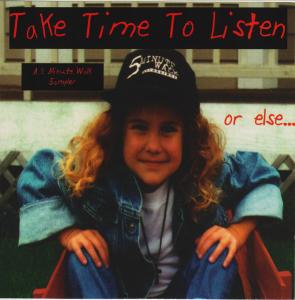Ruth Braunstein, “Mike Johnson embodies evangelicals’ embattlement strategy. It may be backfiring.”
The thing is, the world doesn’t actually hate Christians. Especially in the United States, where white Christians until very recently constituted a demographic majority, American society, culture and law have always privileged white Christian values, norms and practices.
The very body that Speaker Mike Johnson now controls has never been led by a non-Christian, and the 118th Congress as a whole is 88% Christian and 57% Protestant, well above each group’s share in the population. As American society has grown more racially and religiously diverse, white Christian supremacy has increasingly been questioned, but challenges to Christian supremacy are not the same as challenges to their religious freedom.
 Lillian Smith, “The White Christian and His Conscience” (1943, via)
Lillian Smith, “The White Christian and His Conscience” (1943, via)
The white man in America was willing neither to give up Jesus nor to give up the slave. He was willing neither to give up democracy, nor white supremacy. He was willing neither to give up his conscience nor his way of life. Today he is still unwilling — with the result that in many areas of his life, he has given up his sanity instead. We cannot understand America and race without understanding the role that conscience has played in our national drama and our personal lives — and is still playing today.
What a profound conflict it has created! A conflict that tears the heart and mind of Americans, doing strange things to our culture, our personalities, our children, seeping through every level of our life like a slow-spreading poison.
Ana Marie Cox, “We Are Not Just Polarized. We Are Traumatized.”
So, what if the reason so many people identify as trauma survivors is that they are? What if the horrors of the last seven years do translate into a nation that is suffering more than mere political dysfunction? What if the polarization, paranoia, conspiracism, and hopelessness that bog us down have a more holistic origin than structural malfunctions or individual malfeasance?
What if our entire national character is a trauma response?
Before you say “bullshit,” remember: Cynicism is a trauma response.
Rebecca Traister, “The Return of the Marriage Plot”
But where Kearney and Wilcox are wrong — incredibly, monumentally wrong — is that the solution to this structural inequity is simply encouraging more marriage for more people. They confuse cause and effect and are incorrect in the claim that marital privilege is the cause of the inequity rather than a further symptom of it.
Exploring the Peltzman study in her Atlantic article this past summer, Olga Khazan noted that one line of thinking suggests it’s not that marriage makes people happy; it’s that happy people are more likely to get married. I’d add that because marriage is no longer obligatory, it’s often entered into for happy reasons — that you are in love with a person who seems to be a good fit — and not because, say, you are young and pregnant and your community demands it.
Charles Black, “The Lawfulness of the Segregation Decisions” (via)
Then does segregation offend against equality? Equality, like all general concepts, has marginal areas where philosophic difficulties are encountered. But if a whole race of people finds itself confined within a system which is set up and continued for the very purpose of keeping it in inferior station, and if the question is then solemnly propounded whether such a race is being treated “equally,” then I think we ought to exercise one of the sovereign prerogatives of philosophers — that of laughter. The only question remaining (after we get our laughter under control) is whether the segregation system answers to this description.
Here I must confess to a tendency to start laughing all over again.
Radley Balko, “Sarah Huckabee Sanders denies clemency to Charlie Vaughn”
Still, one can take a hard, law-and-order line on sentencing and still be opposed to locking up innocent people. Indeed, you could make a strong argument that you can’t be authentically “law-and-order” without vigorously opposing the incarceration of innocent people. And yet many self-described law-and-order politicians seem to be okay with it — or at least have little interest in knowing when it has happened.











